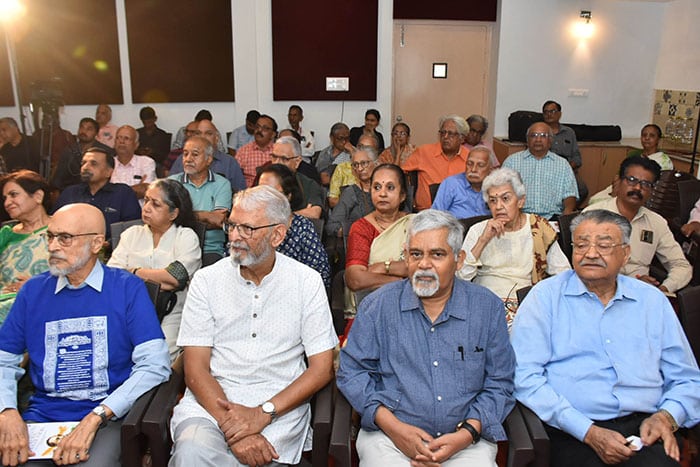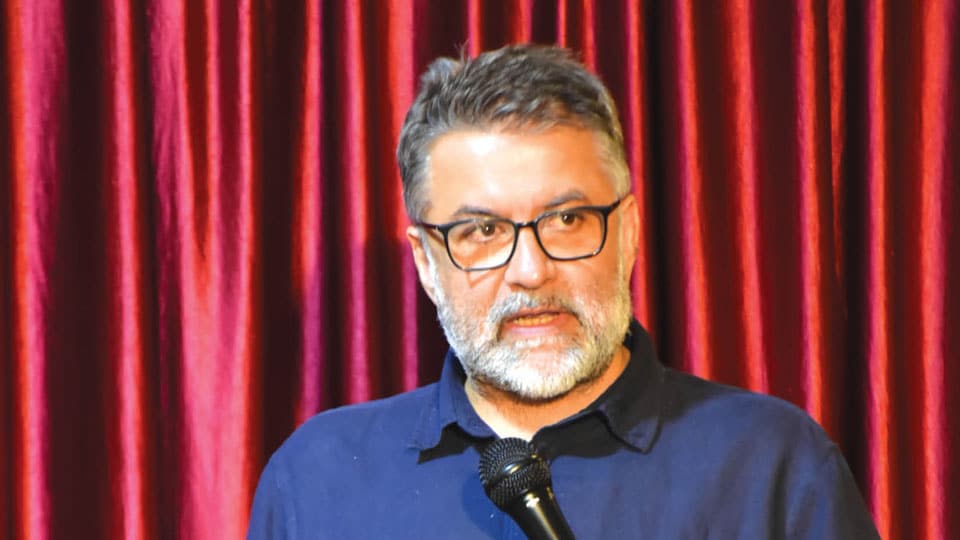Senior Supreme Court advocate Dr. Aditya Sondhi delivers talk on ‘Is the Constitution in Crisis?’
Mysore/Mysuru: “Before the recent Lok Sabha elections, there was an existential crisis concerning the Constitution when some leaders of the ruling party openly proclaimed that they would change the Constitution if they secured more than 400 seats,” said Dr. Aditya Sondhi, a Senior Advocate, who practises in the High Court of Karnataka and the Supreme Court of India.
He was delivering a talk on the topic ‘Is the Constitution in Crisis?’ organised by Mysore Open Forum at Kalpa Kshetra Auditorium, Vijayanagar Fourth Stage, this morning.
“What that new Constitution would look like is anybody’s guess. The fact that we were discussing not an amendment or a modification to the existing Constitution, but an entirely new Constitution, indicates a desire to reinvent the wheel. This is neither desirable nor necessary in our current times,” he added.
“The draft that circulated portrayed India as a ‘Hindu Rashtra’, which I consider a concerning narrative. While this may be a flippant exercise, the fact that it is being discussed publicly is a crisis. However, the Indian electorate has seemingly averted this existential crisis by voting in a Coalition Government whose numbers do not enable the kind of sweeping Constitutional changes that this narrative would have required,” he added.

‘Crisis was a real one’
“A month before the election results, asking whether the Constitution was in crisis would have been a rhetorical question, at least in my view. This is because the crisis was very real – one that I have previously described as both existential and a crisis of identity. These are the types of crises typically associated with individual personality disorders, and I believe the Constitution itself was grappling with these same profound challenges,” he noted.
“While the Indian Constitution is not perfect, there are numerous areas it could potentially address, such as civil rights, human rights, federal structure and empowering citizens. However, the current narrative suggests we are facing a crisis, as the prospect of a new Constitution that could fundamentally redefine our national identity is being discussed, rightly or wrongly,” Dr. Aditya Sondhi said.
“Although the existential crisis may have diminished, I still grapple with a profound identity crisis – a deep sense of alienation from the ongoing discourse. I have personally felt this disconnect, as conversations among my peers have repeatedly questioned whether this Constitution truly represents our own,” he opined.
“I’m acquainted with scholars, including personal friends, who have argued that the Constitution is either colonial or communal in nature. However, I believe these positions can be contested. In my view, the Indian Constitution was fundamentally an anti-colonial endeavour, aimed at dismantling the legacy of the Government of India Act and the British rule that had dominated us for generations,” he said.
Amendable Constitution
Speaking on the Constitution per se, Dr. Aditya Sondhi observed, “Our Constitution is neither rigid nor unamendable. In fact, it is a remarkably complex and comprehensive document, spanning 392 Articles with Schedules. Those who have studied, practised or taught Constitutional law can attest to the fascinating web of jurisprudence that permeates this document. It is not an easy read, but it was forged through an exercise in coalition-building shortly after our independence.
“Dr. Ambedkar is rightly credited as a founding father, but he had to reconcile diverse regional, ethnic, and caste-based views and perspectives to achieve consensus. That they were able to do so in such a short timeframe is quite an incredible feat. That said, the need to amend the Constitution as times change is a real and ongoing necessity,” he added.
Ravi Joshi, retired Joint Secretary in the Government of India Cabinet Secretariat, who is also the Mysore Open Forum Convener, made his opening remarks. Prof. Shalini Urs introduced the speaker.








Recent Comments